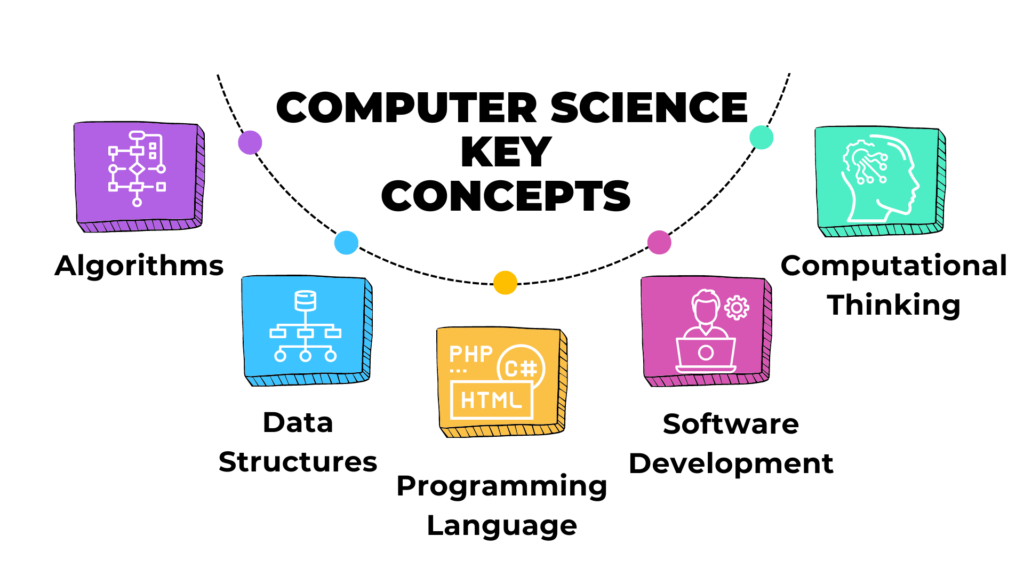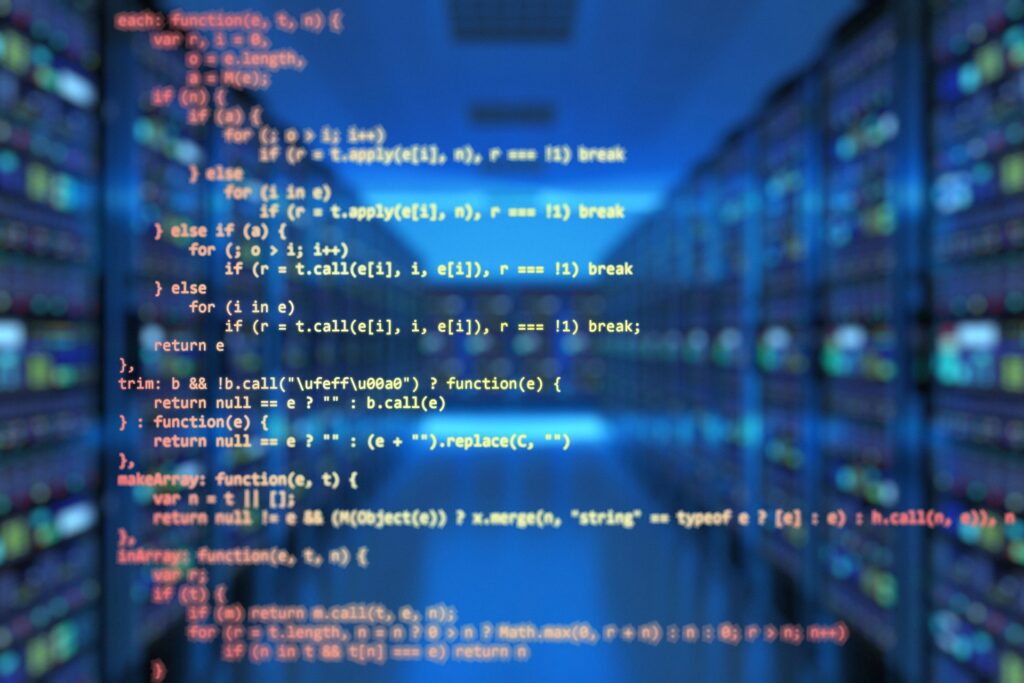Table of Contents
In today’s fast-paced digital world, computer science has become the backbone of innovation and technology. Whether you’re a student, a professional looking to switch careers, or simply curious about how technology works, introduction to computer science is essential. This blog will provide you with a fundamental of computer science, exploring key concepts that form the bedrock of this dynamic field.
What is Computer Science?
At its core, an introduction to computer science is the study of computers and computational systems. It encompasses both the theoretical and practical aspects of how computers work, from the design of algorithms to the development of software and hardware. It’s not just about programming; computer science fundamentals involve problem-solving, critical thinking, and understanding how data and information are processed to make informed decisions.
Why is Computer Science Important?
Computer science is everywhere—from the smartphones in our hands to the complex data systems that power global businesses. Having a solid introduction to computer science provides the foundation for understanding these technologies and innovations. Here are some reasons why learning computer science is crucial:
- Foundation of Modern Technology: It powers software, applications, and services that we use daily.
- Career Opportunities: High demand for roles in software engineering, data science, cybersecurity, and more.
- Critical Thinking: Builds analytical skills that help solve real-world problems.
- Automation and Efficiency: Knowledge of computer science helps create tools that automate routine tasks, enhancing productivity.
Concepts in an Introduction to Computer Science

- Algorithms: Algorithms are step-by-step instructions or procedures for solving a problem or completing a task. They define the logic behind every program and application we use.
- Data Structures: Data structures are ways of organizing and storing data to ensure efficient access and modification. Examples include arrays, linked lists, stacks, and trees.
- Programming languages: Programming languages like Python, Java, C++, and JavaScript are used to create programs and applications. Each has its strengths for different tasks.
- Software Development: The process of designing, creating, testing, and maintaining software applications. It includes various methodologies, such as Waterfall, Agile, and DevOps.
- Computational Thinking: A problem-solving process that involves breaking down complex problems, using pattern recognition, abstraction, and algorithms to find efficient solutions.
Key Areas of Computer Science
Computer science is a broad field with many specialized areas. Here are some of the most popular fields within computer science:
- Artificial Intelligence and Machine Learning: Study of how to create intelligent systems that can learn and make decisions.
- Data Science: Focuses on extracting insights and knowledge from large sets of data.
- Cybersecurity: Protecting systems, networks, and programs from digital attacks.
- Software Engineering: The systematic development and maintenance of software applications.
- Human-Computer Interaction: Examines how people interact with computers and designs technologies to improve usability.
Why Learn Computer Science?
An introduction to computer science opens up diverse opportunities in fields like artificial intelligence, cybersecurity, and data analysis. It also builds critical thinking and problem-solving skills valuable in any career. Here are some key benefits of learning computer science:
- High Demand for Skills: Computer science graduates are in high demand across various industries.
- Versatile Career Options: Roles in web development, data science, artificial intelligence, and more.
- Problem-Solving Abilities: Enhances logical thinking and problem-solving capabilities.
How to Start Learning Computer Science?
Starting with the basics is key. Here are a few steps to kickstart your computer science journey:
- Learn a Programming Language: Start with beginner-friendly languages like Python or JavaScript.
- Understand Basic Algorithms and Data Structures: Study common algorithms and data structures to build a strong foundation.
- Work on Projects: Apply what you learn by working on small projects such as building a website or developing a basic application.
- Explore Different Fields: Once you’re comfortable with the basics, explore different fields like AI, cybersecurity, or data science to find your niche.
Conclusion
An introduction to computer science is the first step towards mastering this vast and ever-evolving field. Whether you aim to become a software engineer, data scientist, or just want to understand the technology that drives our world, starting with these fundamental concepts will set you on the right path.
FAQs
What is Computer Science?
Computer science is the study of computers and computational systems, focusing on both hardware and software aspects, algorithms, and data processing.
What are the core areas of computer science?
The core areas include algorithms and data structures, computer architecture, software engineering, and artificial intelligence.
Is computer science only about programming?
No, computer science encompasses much more than programming. It involves problem-solving, designing systems, data analysis, and understanding the theoretical aspects of computation.
What programming languages should beginners start with?
Beginners can start with Python due to its simplicity and wide usage. Other beginner-friendly languages include JavaScript and Java.







